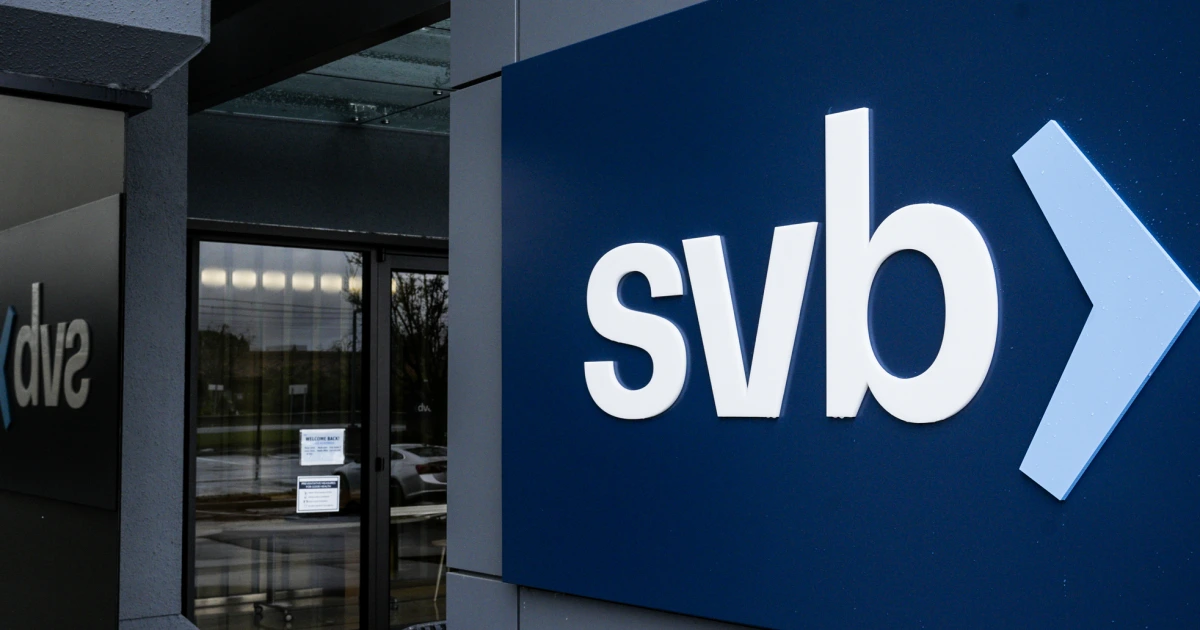|
Getting your Trinity Audio player ready...
|
First Citizens BancShares has acquired the assets and loans of Silicon Valley Bank (SVB), which collapsed earlier this month due to a run on the bank. The takeover deal means that all 17 former SVB branches will open under the First Citizens brand on Monday.
The Federal Deposit Insurance Corp (FDIC) revealed that First Citizens had bought around $72bn of SVB’s assets at a discount of $16.5bn. The FDIC will retain control of about $90bn of SVB’s assets and estimated the cost of the SVB’s failure to its deposit insurance fund would be about $20bn. The UK arm of SVB was bought by HSBC earlier this month for £1.
Investors welcomed the deal, sending First Citizens shares up more than 40%, which helped drive broader gains in banking shares. However, worries over the strength of Swiss banking giant Credit Suisse led to a rushed takeover by rival UBS.
These events have led to concerns over the stability of the banking sector, especially as interest rates have been rising over the past year. Central banks have assured that the banking system is safe, but the rapid transition from a prolonged period of low-interest rates to too much higher rates generates stresses and vulnerabilities, according to Kristalina Georgieva, the head of the International Monetary Fund.
The SVB collapse was quickly followed by the failure of another US lender, Signature Bank, marking the biggest bank failures in the US since the financial crisis of 2008.
Under the SVB takeover deal, SVB customers are being advised to continue using their current branch until they receive notice from First Citizens Bank that their account has been fully moved across. First Citizens is based in Raleigh, North Carolina, and has been one of the largest buyers of troubled banks in recent years, calling itself America’s biggest family-controlled bank.
The collapse of Silicon Valley Bank (SVB) and Signature Bank in the US has raised concerns about the stability of the banking sector, leading to a rush of takeover activity. In Europe, Swiss banking giant Credit Suisse was also facing questions over its strength, prompting a takeover by rival UBS.
The failure of SVB and Signature Bank marks the largest bank failures in the US since the 2008 financial crisis. The Federal Deposit Insurance Corp (FDIC), the US financial regulator, took over the banks earlier this month after a run on the bank forced its hand.
Investors have been wary of the banking sector due to the rising interest rates implemented by central banks to control inflation. The value of investments that banks keep some of their money in has taken a hit as a result, and this has contributed to the failure of banks like SVB and Signature Bank.
Despite reassurances from central banks that the banking sector is safe and well-capitalized, investors remain cautious. Sarah Hewin, head of Europe & Americas research at Standard Chartered bank, said on the BBC’s Today program that there is a “very febrile environment” among investors. She added that “there’s a lot of psychology rather than the reality which is running markets.”
The takeover of SVB by First Citizens BancShares has been welcomed by investors, with the bank’s shares rising by more than 40%. The deal will see First Citizens take on around $72bn of SVB’s assets at a discount of $16.5bn, making it one of the 25 biggest banks in the US.
The FDIC will retain control of around $90bn of SVB’s assets and estimates that the cost of the failure to its deposit insurance fund will be around $20bn. The regulator will also receive an equity stake in First Citizens worth up to $500m.
All 17 former SVB branches will open under the First Citizens brand on Monday, with SVB customers advised to continue using their current branch until they receive notice from First Citizens that their account has been fully transferred. First Citizens, based in Raleigh, North Carolina, calls itself America’s biggest family-controlled bank and has been one of the largest buyers of troubled banks in recent years.
Meanwhile, in the UK, HSBC bought the UK arm of SVB earlier this month for £1.
The turbulence in the banking sector has prompted Kristalina Georgieva, head of the International Monetary Fund, to call for vigilance. She warned that “risks to financial stability have increased” and stressed the need for caution in a time of higher debt levels and the rapid transition from a prolonged period of low-interest rates too much higher rates.
The future of the banking sector remains uncertain, but for now, investors will be keeping a close eye on developments as central banks try to balance inflation control with maintaining the stability of the banking system.
